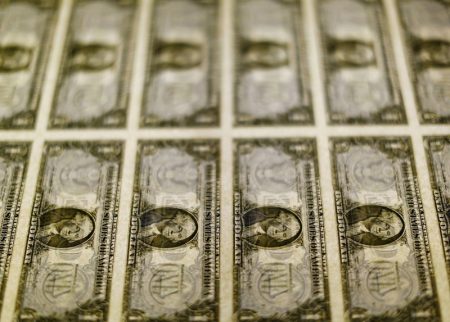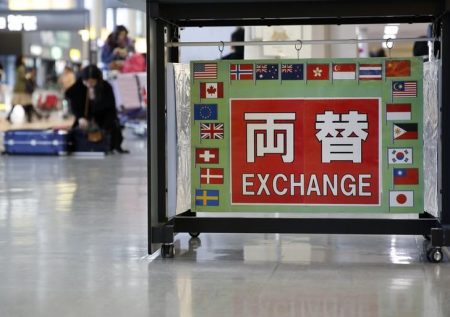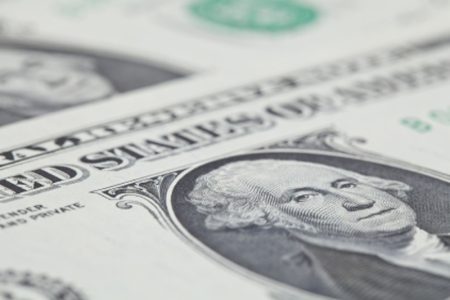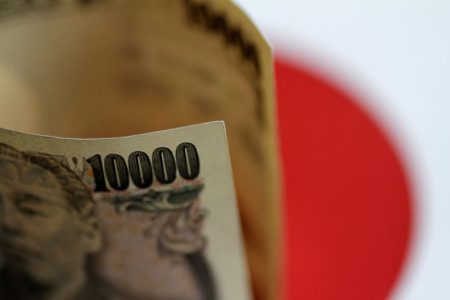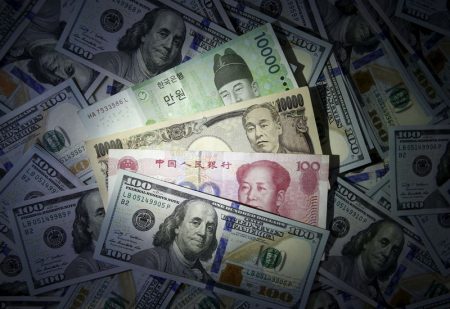By Gertrude Chavez-Dreyfuss and Joice Alves
NEW YORK/LONDON (Reuters) – The U.S. dollar bounced on Friday after falling sharply the last few days, as investors consolidated losses ahead of the weekend, but its trajectory remained tilted to the downside with the Federal Reserve thought near the end of its rate hike cycle amid softening inflation.
It was still on track for its biggest weekly decline since November against a basket of six major currencies.
The =USD edged up 0.%2 to 99.923, after touching a 15-month low of 99.574 earlier. The index was down 2.3% for the week.
The weekly decline was exacerbated by June U.S. producer and consumer inflation data that showed easing price pressures.
U.S. producer prices barely rose last month and the annual increase was the smallest in nearly three years, data showed on Thursday, a day after a report indicated that consumer prices gained modestly last month.
“The U.S. dollar’s recovery today appears to be mostly a correction,” said Helen Given, FX trader, at Monex USA in Washington.
“Markets may have overreacted a bit to Wednesday’s CPI numbers. The speech yesterday from Fed’s Waller reinforced that the Fed is still looking to hike twice, even if markets don’t fully believe it.”
Governor Christopher Waller said he was not ready to call an all-clear on U.S. inflation, as he favored more rate rises this year.
Markets are stil pricing in a 95% chance of a 25 basis point hike from the Fed this month, CME’s FedWatch tool showed, but no more for the rest of the year.
Investors have been betting on a turn lower in the dollar for months, with short positions more than doubling over the month to July 7, according to data from Commodity Futures Trading Commission, although they remain far off the levels in 2021.
Against a weakening dollar, the euro touched a 16-month peak of $1.1245 in Asian hours before flattening at $1.1229.
Versus the Swiss franc, the dollar gained 0.4% to 0.8621 francs, rising from an eight-year low of 0.8568. The dollar was on pace for its largest weekly percentage loss versus the franc since December last year.
The dollar rose 0.5% to 138.805 yen , but was on course for its worst week since January.
“In the near term, we may see a slight bit of dollar strength, but it remains to be seen on July 26 (date of Fed meeting) if the Fed can convince traders it will hike twice more and not just once,” said Monex’s Given.
The Swedish crown fell 0.5% against the greenback to 10.2395 per dollar, moving away from a two-month high hit on Thursday, on data showing consumer inflation is decelerating at a slower pace than expected. The Swedish currency is still set for its biggest weekly gain since March 2009, up 5.2%.
Elsewhere, the Australian dollar AUD=D3 eased 0.8% to US$0.6837 after Michele Bullock was appointed head of Australia’s central bank on Friday, becoming its first female governor as it undertakes a sweeping reorganisation.
Read the full article here

